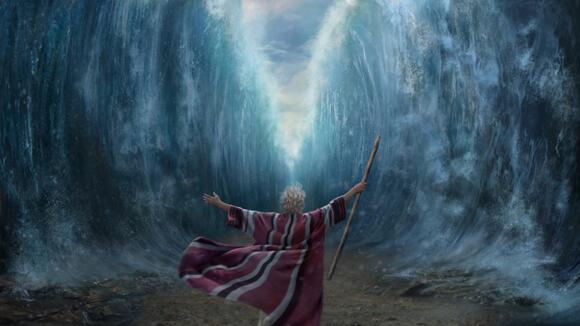Thoughts on parashat Beshalach.
Our tradition does not see the essence of miracles in their supernatural character. This is a Greek/Christian concept that is debated (which does not mean “accepted”) in the rabbinical literature of the Middle Ages, in the writings of philosophers such as Maimonides or Rabbeinu Bachya. It happened due to the reception of Greek philosophy that occurred through the works of Arab philosophers of the 10th-12th centuries and Arabic translations of the works of ancient philosophers. It is so because neither the Hebrew Bible nor the Talmud knows the concept of ‘nature’ or ‘essence’; our ancient tradition uses a different concept – the concept of creation. Therefore, the only thing that would distinguish a miracle from ordinary events is its uniqueness, unexpectedness and the fact that it goes against ordinary “calculus of probability”.
The dominant view on miracles among medieval rabbis is that all these extraordinary events were “programmed” by God in His Work of Creation at the very beginning of time. Thus, all the miracles that have ever happened were planned to happen at a given moment in history and it is no different with the miraculous event, probably the most spectacular of them all, described in our parashah for this week:
And the Israelites went into the sea on dry ground, the waters forming a wall for them on their right and on their left. (Exodus 14:22)
Because this verse describes a very unusual phenomenon, it also uses language in an unusual, specific way. This unusual use of language seems to lead to a kind of contradiction, namely, how can one, with the same feet, enter the sea and at the same time step onto dry land? Our rabbis noticed this contradiction in midrash Exodus Rabbah, decided to explain it, which led them to new, interesting conclusions:
“The children of Israel went into the midst of the sea upon dry land” How is it possible? If they went into the sea, then why does it say ‘upon dry land?’ If they walked on dry land why does it say ‘into the midst of the sea?’ This is to teach that the sea was divided only after Israel had stepped into it and the waters had reached their noses, only then did it become dry land. (Exodus Rabbah 21:10)
The message of this midrash seems to be the following: it is the human action that triggers or enables miracles which don’t just happen on their own or simply as a result of the Divine will. We can find a similar message in another midrash – Mekhilta de Rabbi Ishmael:
R. Yehuda says: When the Israelites stood at the Red Sea, one said: “I do not want to go down to the sea first,” the other said, “I do not want to go down to the sea first,”… While they were arguing, Nachshon the son of Aminadav jumped up first and went down into the water and fell into the waves… At the same time Moses was standing and reciting long prayers before God. Then God said to him, “Moses, my friend is sinking in the water and the sea is closing in on him; the enemy (the Egyptians) is pursuing and you stand here reciting long prayers?” Moses said to God, “What can I do?” God said to him, “lift up your rod.” (Mekhilta de Rabbi Ishmael Beshalach, VaYehi 6)
Here the whole process seems to be a bit more complex – it involves a chain of events – but the beginning and the end is exactly the same: a miracle follows human action.
This may bring us to another logical contradiction: if the miracles were ‘programmed’ by God at the beginning of time, how come they can be triggered by a human action? Does it mean that those actions were programmed as well? Does it mean that humans don’t have free will? A statement like that certainly goes against the fundamental principles of Judaism. The solution to this alleged contradiction may be quite simple: the fact that some events, including human actions, might have been planned by God as an expression of His will ahead of time does not mean all events and occurrences in the world were ‘programmed’ the same way. Thus, the “Divine programming” would not take away our freedom, only limit it and make it not absolute, which is exactly the way human freedom appears to be.
But that is not something I would like to stress today. What I would like to emphasize today is the human-Divine character of miracles. As I have already mentioned, miracles do not have to be supernatural to be miracles. They also are enabled / triggered by human action. If miracles happen at all, they, as I believe, require a human-Divine partnership. It is the Divine, spiritual realm that opens our minds and hearts towards things we often see as impossible. It is human action that enables the impossible to happen. Only seeing the two parts of this equation can truly improve our lives and bring prosperity and peace.
Shabbat shalom!

